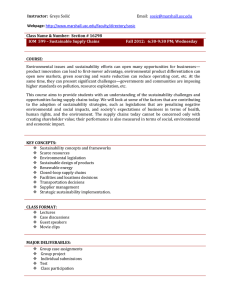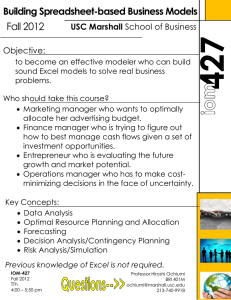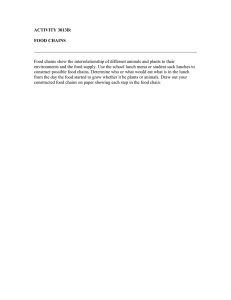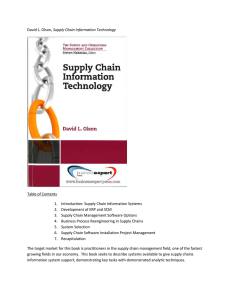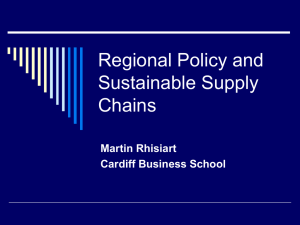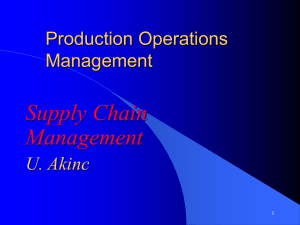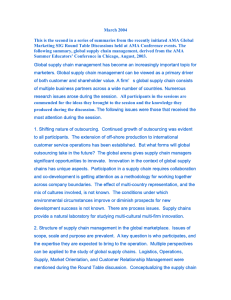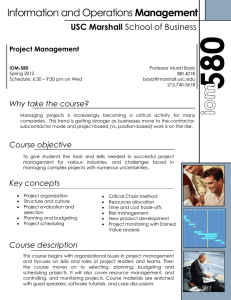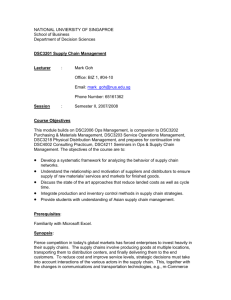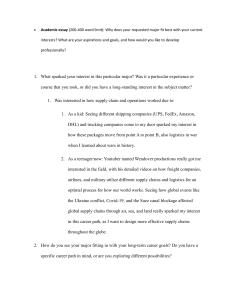Instructor: Webpage: Class Name & Number: Section # 16288
advertisement
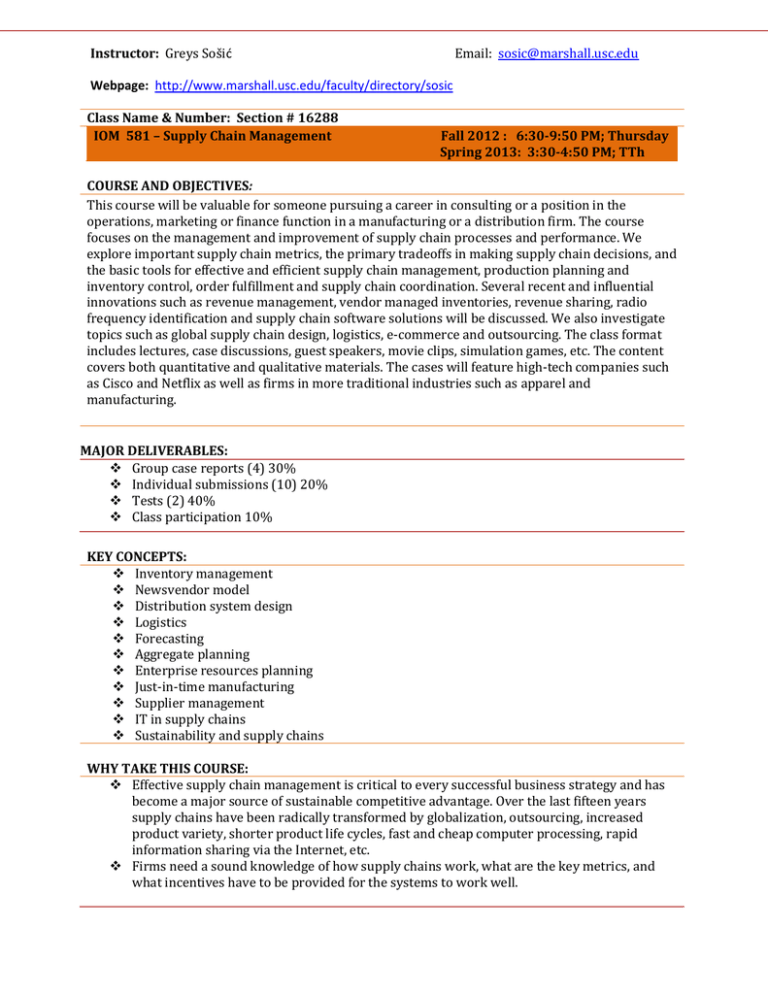
Instructor: Greys Sošić Email: sosic@marshall.usc.edu Webpage: http://www.marshall.usc.edu/faculty/directory/sosic Class Name & Number: Section # 16288 IOM 581 – Supply Chain Management Fall 2012 : 6:30-9:50 PM; Thursday Spring 2013: 3:30-4:50 PM; TTh COURSE AND OBJECTIVES: This course will be valuable for someone pursuing a career in consulting or a position in the operations, marketing or finance function in a manufacturing or a distribution firm. The course focuses on the management and improvement of supply chain processes and performance. We explore important supply chain metrics, the primary tradeoffs in making supply chain decisions, and the basic tools for effective and efficient supply chain management, production planning and inventory control, order fulfillment and supply chain coordination. Several recent and influential innovations such as revenue management, vendor managed inventories, revenue sharing, radio frequency identification and supply chain software solutions will be discussed. We also investigate topics such as global supply chain design, logistics, e-commerce and outsourcing. The class format includes lectures, case discussions, guest speakers, movie clips, simulation games, etc. The content covers both quantitative and qualitative materials. The cases will feature high-tech companies such as Cisco and Netflix as well as firms in more traditional industries such as apparel and manufacturing. MAJOR DELIVERABLES: Group case reports (4) 30% Individual submissions (10) 20% Tests (2) 40% Class participation 10% KEY CONCEPTS: Inventory management Newsvendor model Distribution system design Logistics Forecasting Aggregate planning Enterprise resources planning Just-in-time manufacturing Supplier management IT in supply chains Sustainability and supply chains WHY TAKE THIS COURSE: Effective supply chain management is critical to every successful business strategy and has become a major source of sustainable competitive advantage. Over the last fifteen years supply chains have been radically transformed by globalization, outsourcing, increased product variety, shorter product life cycles, fast and cheap computer processing, rapid information sharing via the Internet, etc. Firms need a sound knowledge of how supply chains work, what are the key metrics, and what incentives have to be provided for the systems to work well.
